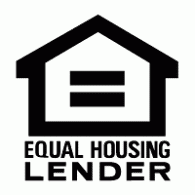- 14362 N. Frank Lloyd Wright Blvd., Suite 2134 Scottsdale, AZ 85260
- Mon - Fri: 8:30am - 6:00pm

You’ve made it.
You’re thinking of retiring, and you’ve built considerable equity in your home. The financial planner you’re working with is mapping an income stream from your investments. You sure could use a bit more capital to draw from to travel and enjoy retirement or to cover expenses.
Does any of this sound familiar? If so, a reverse mortgage in Scottsdale, Phoenix, AZ could very well be the financial boost you need!
What is a reverse mortgage loan in Arizona? Read on, and we’ll tell you everything you need to know.
A reverse mortgage is a specific type of loan. It is only available to homeowners who are 62 and older with significant equity in their primary home.
With a traditional loan, you make your monthly payment to the lender. With a reverse mortgage, the lender pays you.
Sounds pretty great, right?
You would keep the title to your home. And you would still be responsible for property taxes, maintenance, and upkeep. But you can say good-bye to that monthly mortgage payment and hello to an income boost.
With a reverse mortgage loan in Phoenix, Arizona, you can borrow part of your home’s equity. How much you receive depends on a few factors—things like your age, the current interest rate, and the home’s value.
The greater the equity in your home, the more you will get. The older you are, the more you will get. On a reverse mortgage, you will never owe more than what the home is worth.
Converts a portion of home equity into cash with no monthly mortgage payments*
Majority of reverse mortgages are HECMs (Home Equity Conversion Mortgage, a federally insured program)
*Taxes and insurance must still be paid on time. Any costs to keep up property maintenance must still be paid. Failing to meet these requirements can lead to default.
Do you have a question about our process of getting a new home purchase loan? Learn more below, or feel free to contact us. We look forward to hearing from you!
How Does a Arizona Reverse Mortgage Work?

A reverse mortgage in Scottsdale, Phoenix, AZ turns your home’s equity into a payment to you, like an advance payment on your home equity.
Want to know the best part? Reverse mortgages in Phoenix, Arizona are usually tax-free. And it shouldn’t affect your Medicare or Social Security Benefits.
You won’t have to pay back the money if you live in your home. That is to say, you won’t make any payments until you die or decide to move out.
Reverse mortgages in Phoenix, AZ have many advantages.
For starters, you don’t need to make monthly payments toward the loan balance.
Proceeds can be used for anything at all, from paying medical bills to living your best life. And there is no penalty for pre-payment.
Your spouse can remain in the home after you die, even if she’s not listed as a borrower.
And, if you are facing foreclosure, you could use a reverse mortgage to pay off the existing mortgage. You are essentially stopping the foreclosure from happening.
One other benefit of a variable rate reverse mortgage in Phoenix, Arizona is the growth of the available credit line. This is beyond the purpose of this writing. However, it should be explored as it could be a valuable tool in “Long Term Care” planning.
You see, not everyone has access to the many benefits of a reverse mortgage in Phoenix, Arizona. It is a loan reserved only for people who meet the following criteria.
If this is you, then there is great news! Your chances of being approved for a reverse mortgage in Scottsdale, Phoenix, AZ are excellent.
But we still have more to share with you about this wonderful option.
Things to consider:
Non-Recourse Loan:
One of the many benefits offered is that you can use the funds any way you see fit.
Some people get reverse mortgages in Scottsdale, Phoenix, AZ because they need financial assistance, while others want to take a trip or add to their homes.
Here are some popular ways people 62 and older decide to get reverse mortgages in Scottsdale, Phoenix, AZ.
This is true for the federally backed reverse mortgages, called HECM’s. Let’s have a quick look at the three types of reverse mortgages.
You have three options: Single purpose, proprietary, and federally-insured.
Single-Purpose Reverse Mortgages are the least common: state and local government agencies and non-profits offer this product.
This type does have restrictions on usage. You can use it for a specific job, like a remodel or addition.
Proprietary Reverse Mortgages are private loans and are not backed by the government.
You can often get a larger loan advance using this type. This is doubly true if you have a home that is highly valued.
Federally-Insured Reverse Mortgages are also called Home Equity Conversion Mortgages. HECM’s are the most popular. While they have higher upfront costs, there are no restrictions on usage.
They are widely available from many Federal Housing Administration (FHA) Lenders. Borrowers must also receive HUD-approved counseling prior to application.
Blake Mortgages is proud to offer HECM’s to our clients. The primary benefit of a HECM is that it eliminates a monthly mortgage payment. Interest accrues on the principal, and you don’t have to pay it back until you die or move out of the home. The bank cannot touch your home’s equity, and there is no recourse other than the property.
Meaning, the lender can’t go after family members because there is no equity left by the end of the loan’s life or even if it exceeds the value of the home.
That’s right. There are still more advantages to tell you about. If you obtain a reverse mortgage in Scottsdale, Phoenix, AZ, the following consumer protections are now guaranteed.
Reverse Mortgages are an excellent option for homeowners 62 and older. Reverse mortgages require no monthly mortgage payments as the loan is repaid when the owner passes away, leaves home permanently, or sells it. In this page, we will explain reverse mortgages to you in a manner that makes them easier to understand. The complex nature of reverse mortgages can sometimes be confusing, but we are here to simplify it.
Do you have a question about our process of getting a new home purchase loan? Learn more below, or feel free to contact us. We look forward to hearing from you!
A reverse mortgage is a loan against your home’s equity and with no required monthly mortgage payments. Reverse mortgage loans are designed to meet the needs of retirees who are typically on a fixed income. What reverse mortgages offer is tax-free cash for virtually anything the homeowner desires, from social security income supplementation to long-term care payments it is all available.
The tax-free aspect of reverse mortgages is very appealing. Because a reverse mortgage loan is a loan like any other loan, loan funds received are not taxable. While this is mostly the case, it is always a good idea to check this with a tax professional.
At Blake Mortgage we are happy to provide all the advice that pertains to the loan, both the benefits and the downsides. We understand better than anybody that this is a complicated loan, but one that you may wish to take advantage of. We are here to facilitate the process.
There is a common misconception that a reverse mortgage is like selling your home to the bank, but this is not true. As a homeowner, you are not relinquishing your title or ownership rights at any point. Reverse mortgages send you monthly statements outlining the interest rates and property taxes that you are still responsible for. There is not a monthly payment, and that is one of the significant differences.
Is a Reverse Mortgage Right for Me? A reverse mortgage loan is something that at Blake Mortgage, we often advise to consider carefully. If at retirement age, a client feels that he or she cannot afford specific desires or needs, then a reverse mortgage may be right for them. A reverse mortgage can help the homeowner stay in the home they love while also enhancing their retirement years.
One should consider that the loan is not for everyone as there are individual costs associated with it. Appraisal and origination charges are only some of the expenses which make this loan not advisable for people who cannot afford it, are moving soon, or may require care in an inpatient facility. Being able to fully realize the benefits of a reverse mortgage loan should be the deciding factor, and that is something we have always advised our clients to do.
Who Qualifies?
Anyone over the age of 62 with a property under the name should qualify for a reverse mortgage loan so long as they can prove that they have enough residual income to pay the property taxes and interest on the loan. Third-party counseling is required that must also take place to qualify since the Federal Housing Administration requires that the borrower fully understand the terms of the loan. So long as all the requirements are met, the loan can be signed and be underway.
A Home Equity Conversion Mortgage, also known as a HECM, is the most common of all reverse mortgages. The main advantage of this mortgage is that the borrower does not have to pay any interest until the loan reaches maturity. The bank is not eating away at your home’s equity, and there is no recourse other than the property. A lender cannot go after family members since there is no debt left until the end of the loan’s life. Home Equity Conversion Mortgages continue to be the most popular choice. Financial Assessment
In 2014, FHA introduced the “Financial Assessment” for the reverse mortgage loan qualification. Lenders must check a borrower’s ability to keep up with their obligations such as homeowner’s insurance and property taxes. 24 month period is taken int5o consideration, during this period the borrower cannot have any missed payments on consumer credit or property charges to qualify for the loan.
There is always the option of paying the loan in full without any penalty. If possible, paying the mortgage in full assures that your heirs do not have to worry about having to resell or refinance the property once you pass. The standard time for this process is 12 months, and if that time elapses without action from the heirs, the lender will, unfortunately, have no choice but to foreclose on the property.
If the homeowner is receiving benefits from the state, a reverse mortgage can indeed affect them. Because Social Security and Medicare are public benefits, they are not affected, but all other need-based benefits are. A reverse mortgage can affect eligibility and leave a homeowner without benefits he may desperately need. Before looking into reverse mortgages, it is best to weigh the pros and cons.
We at Blake Mortgage are always happy to walk you through all these regulations in person at our Scottsdale office.
Our years of experience in the financial sector gives us an edge when advising about reverse mortgage loans. We will provide you with all the benefits you need. We want retirees to have an opportunity to live their final years to the fullest, and that is why we offer this complicated but many-a-time beneficial loan.
Let’s talk! We’d love to hear from you. Whether it’s a reverse mortgage or one of our other lending options, we can help.
We are always available to answer any questions our clients may have about reverse mortgage loans. We are here to serve you every step of the way.
We’ve been helping customers afford the home of their dreams for many years and we love what we do.
Company NMLS: 150459
www.namb.org


© Copyright 2024 Blake Mortgage. All rights reserved.